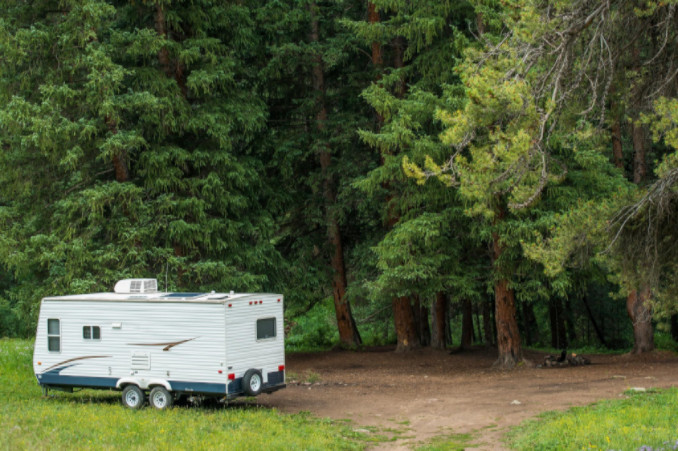If you’re the proud owner of a class B camper van or RV, then you probably plan on spending a good bit of time out exploring the country. This is a fine idea until you realize that it means you won’t always have unlimited access to electricity.
So how do you plan to power everything from your refrigerator to your coffee maker to your hairdryer?
Many places you’ll stop over for the night have some sort of electricity hookup; however, it’s always good to have a backup plan by considering solar panels.
What Size Solar System Do I Need?
Once you’ve decided you need solar panels to help power your creature comforts far from home, there are several aspects you need to consider before making the leap. The most important is determining the size of the system you’ll need? The answer to this depends on what you’ll be running.
In order to make this determination, you should understand the following:
- The estimated amperage for your given system. Also consider the amount of time you’ll be running your desired appliance(s). These factors will determine the size of the battery system you’ll need to run.
- The maximum voltage draw for your desired appliances.
Spring for a Solar Panel Kit or Purchase Individual Pieces?
For the most part, this depends upon the individual. In the past, solar kits were very pricy; however, the prices have become reasonable in recent years. If you want to go the DIY kit route, consider checking out the solar kits offered by GoalZero.
If you’re planning to build your DIY solar system with individual pieces, you need to ensure that you have the required components. These components include:
- Panels– at least two, but setups are easily expandable
- Charge Controller
- Meter– to monitor/control your system
- Batteries – These should be to the size your system requires. Consider checking out the lithium ion ones that have gained popularity on the market recently
When a Solar Panel System DOES NOT Make Sense
First and foremost, installing a solar system is an investment. It’s going to require, planning, time and money – not to mention a considerable chunk of your RV/camper’s roof and/or storage space. This means that if you’re not going to make enough use of the benefits of your investment, you are better off saving that money for gas and other fun things.
Here are some examples of when a solar panel system doesn’t make sense:
- The majority of your planned camp sites have electric hook-ups. There are plenty of vacation spots where you can RV and hook-up to electricity. If your only foreseen needs for solar energy are when you’re stopping for the night on your way to your campsite (like blacktop “boondocking” in a Wal-Mart parking lot or rest area), then a solar panel system may be a waste.
- Vacationing in extreme climates. Air conditioning and a solar panel system do not play well because an AC unit requires so much electricity. These types of vacations are better suited for generator-level power sources.
- Vacationing in populated areas. Most of the places you’re likely to vacation in will have plenty of access to electric hook-ups, especially on the East Coast or Midwest. If you’re venturing out West, you have many more opportunities to camp in places where solar energy would be welcomed.

